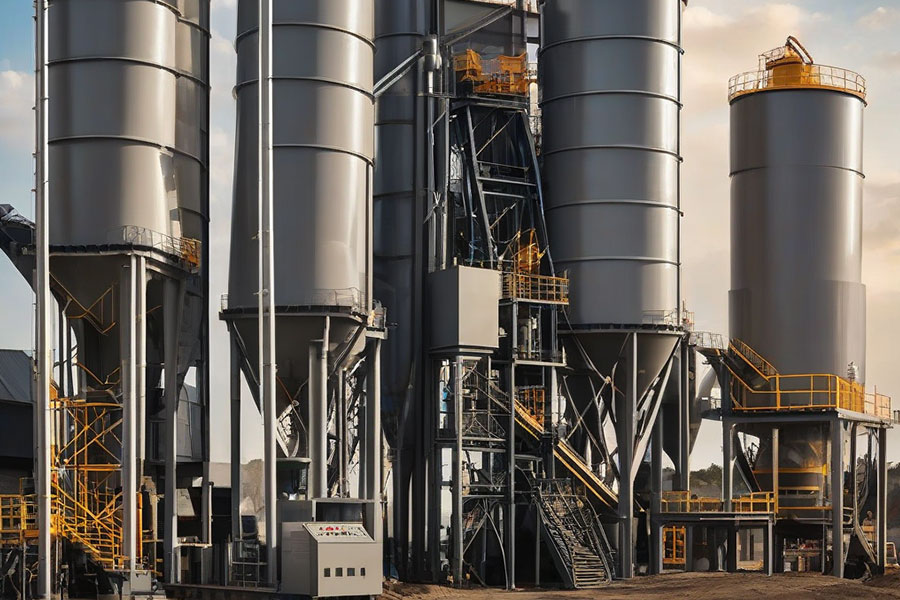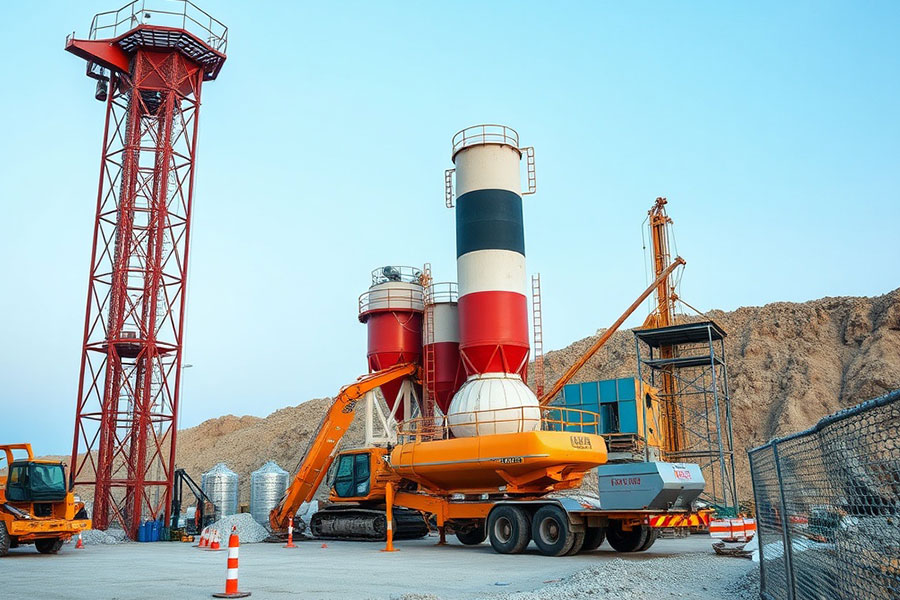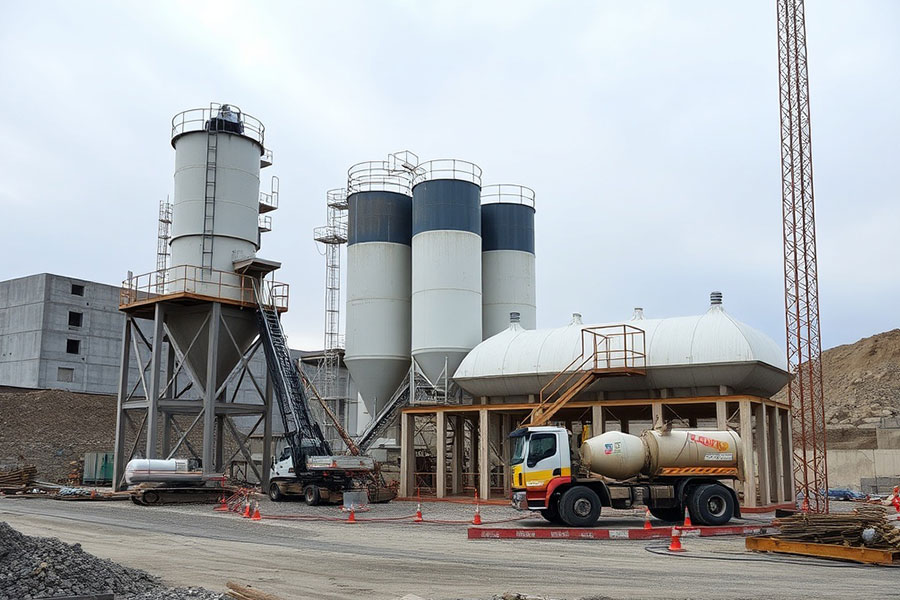Concrete batching plants play a vital role in the modern construction industry, and stationary concrete batching plants are the preferred choice for many large-scale construction projects. As highly efficient concrete production equipment, they offer advantages such as high stability and a high degree of automation. When choosing a stationary concrete batching plant, it is important to understand its specific configuration and key selection criteria. We will provide a detailed introduction below.
Basic Configuration of a Stationary Concrete Batching Plant
A stationary concrete batching plant consists of several key components, each with a distinct function, which together ensure efficient operation. The following are common configurations:
Mixer Unit
The mixer unit is the core component of a stationary concrete batching plant and typically consists of a twin-shaft forced mixer or a single-shaft mixer. The twin-shaft forced mixer is suitable for large-scale concrete production, offering uniform mixing and high efficiency.
Batching System
The batching system includes an aggregate silo, an aggregate conveying system, and a batching scale. High-precision batching scale control ensures the precise proportions of various raw materials. The configuration of the batching system plays a decisive role in the quality of concrete.
Cement Silos and Screw Conveyors
Cement silos store cement, while screw conveyors transport it to the mixer. Silos are typically larger to accommodate large-scale construction projects, and screw conveyors ensure efficient cement transportation.
Control System
The control system is the brains of the concrete mixing plant, responsible for monitoring and coordinating the entire production process. Modern concrete mixing plants are often equipped with intelligent PLC control systems, which provide real-time visibility into equipment operating status and simplify operation.
Pneumatic and Electrical Systems
The pneumatic system operates various mechanical components, such as the opening and closing of the discharge gate, while the electrical system is responsible for power supply and equipment startup control.
How to Choose the Right Fixed Concrete Batching Plant?
With so many brands and models of fixed concrete mixing plants available, how do you choose the right one? The following key points are crucial:
1. Select a Plant Model Based on the Project Scale
First, when choosing a concrete mixing plant model, consider the scale of the project. For large-scale construction projects or road construction, it’s recommended to choose a large-scale plant, as these typically have higher production capacities and can handle large quantities of concrete. For small or medium-sized projects, choosing a small or medium-sized concrete batching plant is more cost-effective.
2. Consider the mixer type
The mixer type directly affects the mixing effect and quality of concrete. Forced concrete mixers are suitable for concrete with complex formulations, especially for producing high-strength concrete. For projects requiring high mixing precision, a twin-shaft forced concrete mixer is more suitable. For general construction projects, a single-shaft concrete mixer can meet basic requirements.
3. Batching Accuracy and Automation
A high-precision batching system ensures consistent concrete quality, making it crucial to choose a batching plant with high batching accuracy. Modern fixed concrete batching plants are typically equipped with highly automated batching systems that precisely control the amount of each raw material added through computer systems.
4. Production Efficiency and Capacity
Production efficiency and capacity are key indicators of a batching plant’s performance. When selecting a fixed concrete batching plant, it’s important to evaluate production capacity based on the project’s construction period to ensure the plant can meet deadlines. If large-scale, long-term concrete production is required, equipment with higher production capacity is recommended.
5. Consider Equipment Maintenance and Care
A fixed concrete batching plant is a high-load operation, so maintenance and care are crucial factors to consider when selecting one. Choosing a plant that is easy to maintain and has readily available spare parts can reduce the difficulty and cost of routine maintenance.
Advantages of Fixed Concrete Batching Plants
Fixed concrete batching plants offer many advantages over mobile batching plants:
High Stability and Durability
Fixed concrete batching plants are typically more robustly designed to accommodate long-term, large-scale production needs, maintaining high stability and durability.
Suitable for Large-Scale Production
Fixed batching plants offer high production capacity and are suitable for large-scale construction projects, providing continuous and efficient concrete production.
Higher Automation
Modern fixed concrete batching plants are equipped with advanced PLC automation control systems, making them easier to operate, reducing manual intervention, and improving production efficiency.
Optimized Production Processes
The batching, mixing, and conveying processes can be highly automated, significantly improving production efficiency and ensuring consistent concrete quality.
Choosing the right fixed concrete batching plant not only improves construction efficiency but also ensures consistent concrete quality. When selecting a concrete batching plant, factors such as project scale, mixer type, batching accuracy, and equipment maintainability all need to be considered. Henan Hengyuan, a professional manufacturer of concrete batching plants, offers a variety of stationary concrete batching plants to meet the needs of diverse customers. We hope this article will help you better understand the configuration and selection of stationary concrete batching plants, providing support for your construction projects.
We welcome customers to visit our factory or contact us for a quote.
Contact us:
WhatsApp +86 199 3949 4756
Email sales@hengyuanmachine.com



